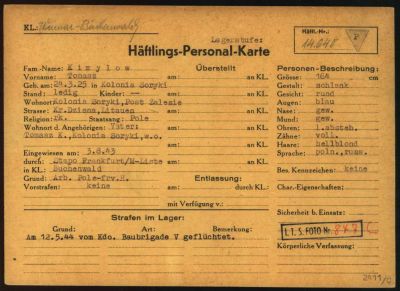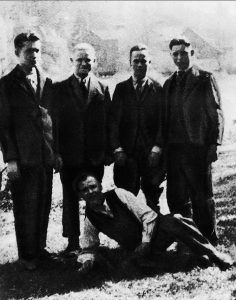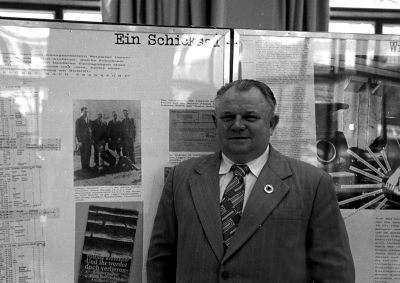Forced child labour in Hessen – The Story of Tomasz Kiryłłow

The story of Tomasz Kiryłłow is absolutely typical for the generation born in the interwar period, with at least two cultures being brought together in his family, the Polish and the Belarusian. His family was living in the northeastern part of the Second Polish Republic, in Hlybokaje[14], when the Second World War began. His mother's family was Polish, he was baptised a Catholic and was given a Polish first name. By contrast, his father's family was Belarusian and orthodox. As well as Polish, Tomasz Kiryłłow could also speak Russian and Belarusian. The young Tomasz was also fluent in French because he had spent the first ten years of his life, until 1935, in Northern France. For financial reasons, his parents had migrated to the area near Lille and Valenciennes (Pas-de-Calais). Growing up multilingual and having varied language skills would later prove very important to Tomasz Kiryłłow’s survival strategies as a forced labourer.
As a 17-year-old adolescent, Tomasz Kiryłłow left the Belarusian Soviet Republic by train with other young people from his region at the start of 1943. Because he feared reprisals against his family if he refused the German diktat, he did not try to flee from forced labour in the German Reich. After a journey that took several days, he arrived in Hessen: The train’s final stop was Kelsterbach, southwest of Frankfurt. Finally, after arriving in Germany and spending a first night in a transit camp for “Eastern Workers”[15], Tomasz Kiryłłow and others travelled by train to the Lahn.
His first impression stirred memories of his childhood in France:
“We walked through the town. I liked the high, multi-level houses. To that point, none of us had seen such a beautiful town close up. Cars, motorbikes and bikes hurried over the wide asphalt streets. Well dressed pedestrians thronged along the pavements. The shops had large display windows.”[16]
It was in the camp in Wetzlar that he experienced for the first time what it was like to be addressed by a number and not by his name. Tomasz Kiryłłow also saw older foreign workers wearing the “OST” armband of the “Eastern workers”. From the very first day, he experienced what it meant to be surrounded by armed soldiers.
[14] Belarusian: Hłybokaje; Russian: Glubokoje; Polish: Głębokie.
[15] Because he had lived in the Belarusian Soviet Republic, he was categorised as an “Eastern worker”, whilst Poles were actually categorised differently and had to wear a “P”.
[16] Kiryłłow 1985, p. 39.




